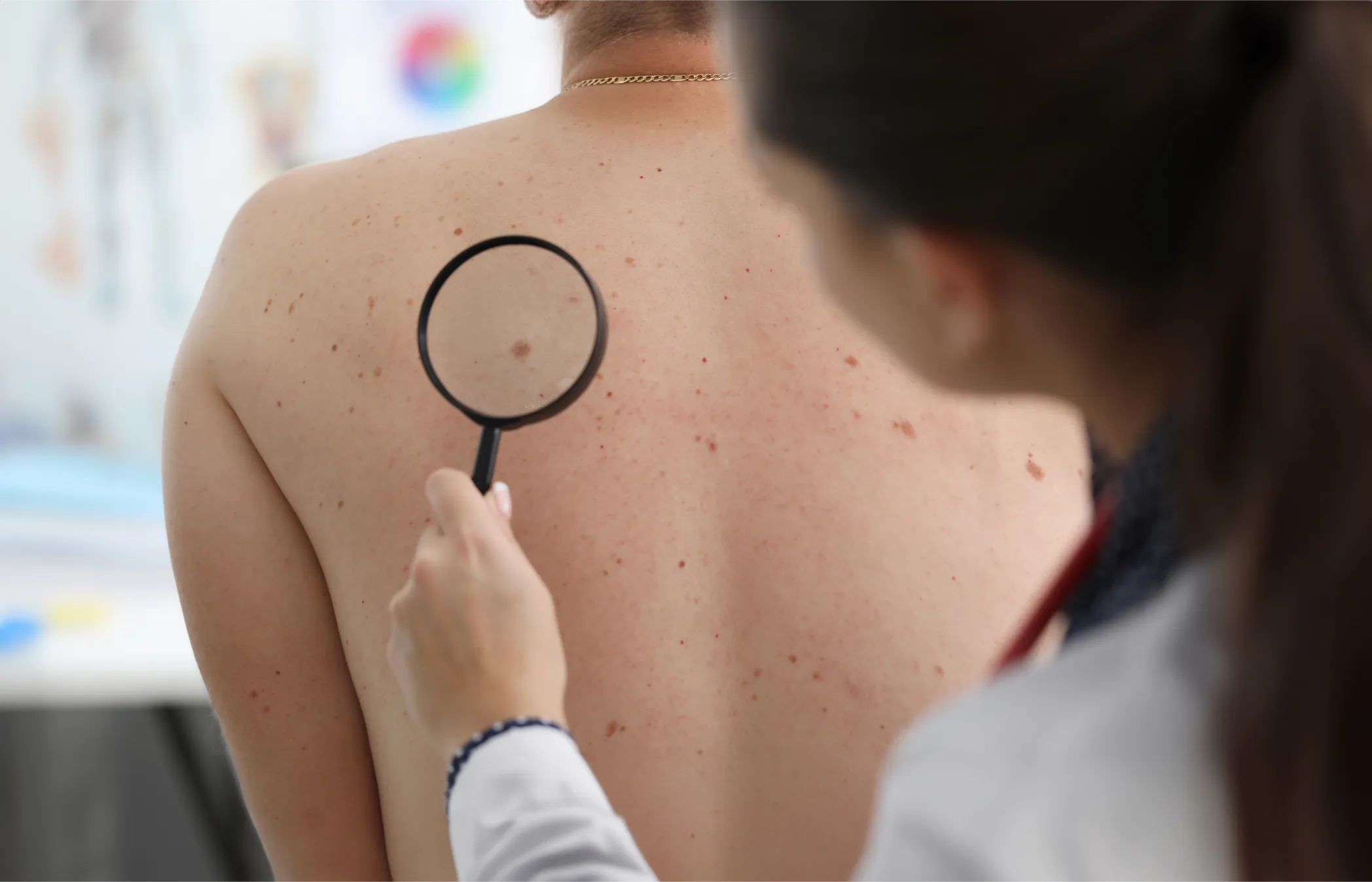
Medical Weight Loss Explained
A lot is said about medical weight loss but we are here to debunk the myths for you.
Dermatology > Acne

Find Out More


Acne is a common skin condition characterised by spots, nodules, cysts, and oily skin on the face, back, and chest.
Over 80% of adult acne cases occur in women, and it is believed that the majority of these cases are caused by hormonal changes.
For women, these hormonal changes typically happen just before their period, during pregnancy, or due to hormonal conditions such as polycystic ovary syndrome (PCOS).

Acne can be triggered by a variety of factors including hormonal changes, stress, and genetics.
It can also be caused by blockages in the hair follicles, which occur when the sebaceous glands produce excess sebum. This excess sebum combines with dead skin cells to form a plug, leading to spots. When bacteria naturally present on the skin infect the follicle, more severe forms of acne, such as papules, pustules, nodules, or cysts, can develop.
Other potential causes of acne include certain medications (such as lithium and some anti-epileptic drugs), smoking, and regularly wearing clothing or accessories that rub against the same area of the skin, such as sweatbands, bandanas, or backpacks, can also contribute to acne.


Common treatments for acne often involve oral antibiotics to reduce inflammation and bacterial growth.
Medications like oral contraceptives and anti-androgens can also be effective in regulating hormones that contribute to acne.
Topical treatments are another popular choice, designed to prevent pore clogging, eliminate acne-causing bacteria, and diminish inflammation.
Early intervention can help prevent some of the following acne complications:
Use our online booking engine or book your test by giving us a call.
On the online booking engine select the “appointment type” you need.
You will be seen by one of our friendly doctors or trained clinicians.

Note your acne history, including the types of acne (e.g., blackheads, cystic acne), treatments you have tried, and any triggers you suspect (e.g., diet, stress). Bring a list of current medications and supplements, as some can affect acne. Write down your current skincare routine, including products used and their frequency.

The dermatologist will review your medical history and current acne issues. They will examine your skin to assess the type and severity of acne. Based on your history and examination, they will discuss a diagnosis and potential treatment options.

If prescribed medication or topical treatments are used, follow the directions carefully. Adjust your routine based on the recommendations provided, and avoid introducing new products without first consulting your provider.
Incorporated
in 1998
Experienced doctors & a professional team
Registration
not needed
Up-to-date with the latest treatments & testing
Strictly
confidential
Experienced doctors & a professional team
Affordable private
health care
Transparent fee structure with no hidden charges
We work with experienced consultants & healthcare professionals who have received positive feedback from our patients, and with whom we have established long-term relationships.
Latest Episode
Tune in to our podcast to explore the world of healthcare and learn from distinguished special guests. We cover everything from preventative measures to cutting-edge treatments so that you can stay informed and up-to-date on health-related things.

A lot is said about medical weight loss but we are here to debunk the myths for you.

Tourist in London and need a GP? Get fast, private care for illnesses, injuries, or lost medication. No registration needed.

With NHS appointments harder to access, many people are turning to private GPs for faster, more convenient care.
Subscribe for latest updates & news


From same-day private GP and blood test appointments to visa medicals, a sexual and reproductive health clinic, and preventative health screenings, we are here to help.
Contact Us
Accepted Insurance Companies






Please note that Walk-in Clinic is a private medical centre & not an NHS service. Harley Walk-in Clinic Ltd company registration no. 07472804